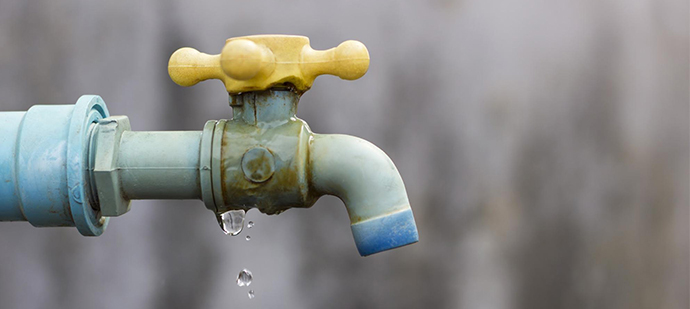How to Examine If Your Residence Has a Concealed Leak
How to Examine If Your Residence Has a Concealed Leak
Blog Article
Are you currently on the lookout for help and advice on Detecting hidden plumbing leaks?

Early detection of leaking water lines can mitigate a prospective catastrophe. Besides saving you money, it will lessen the aggravation and frustration. The minute you locate a leakage, calling your plumber for fixings is the most effective option. Nonetheless, some small water leaks may not be visible. Right here are some hacks that assist if you can not discover it with your naked eyes.
1. Examine the Water Meter
Examining it is a surefire method that aids you find leakages. If it moves, that shows a fast-moving leak. This indicates you may have a slow leakage that can even be below ground.
2. Inspect Water Intake
Assess your water costs and track your water usage. As the one paying it, you need to discover if there are any discrepancies. If you spot sudden changes, regardless of your consumption coinciding, it means that you have leaks in your plumbing system. Bear in mind, your water bill ought to fall under the very same range on a monthly basis. An unexpected spike in your expense shows a fast-moving leakage.
A steady increase every month, even with the same practices, reveals you have a slow leak that's also gradually escalating. Call a plumber to thoroughly check your home, particularly if you feel a cozy location on your flooring with piping below.
3. Do a Food Coloring Examination
30% comes from commodes when it comes to water consumption. Test to see if they are running properly. Decrease flecks of food shade in the container and also wait 10 mins. There's a leakage in between the tank as well as dish if the shade in some way infiltrates your dish throughout that time without flushing.
4. Asses Outside Lines
Do not forget to examine your outside water lines as well. Ought to water leak out of the link, you have a loose rubber gasket. One little leak can waste tons of water and also surge your water bill.
5. Evaluate and also Evaluate the Scenario
Homeowners should make it a routine to check under the sink counters and also even inside closets for any type of bad odor or mold growth. These two red flags suggest a leak so prompt focus is required. Doing routine evaluations, even bi-annually, can conserve you from a significant problem.
Inspect for discolorations and weakening as most pipelines and appliances have a life span. If you suspect dripping water lines in your plumbing system, do not wait for it to rise.
Early discovery of dripping water lines can minimize a possible calamity. Some small water leaks might not be visible. Inspecting it is a surefire method that aids you discover leakages. One small leakage can squander heaps of water and increase your water costs.
If you think dripping water lines in your plumbing system, don't wait for it to rise.
WARNING SIGNS OF WATER LEAKAGE BEHIND THE WALL
PERSISTENT MUSTY ODORS
As water slowly drips from a leaky pipe inside the wall, flooring and sheetrock stay damp and develop an odor similar to wet cardboard. It generates a musty smell that can help you find hidden leaks.
MOLD IN UNUSUAL AREAS
Mold usually grows in wet areas like kitchens, baths and laundry rooms. If you spot the stuff on walls or baseboards in other rooms of the house, it’s a good indicator of undetected water leaks.
STAINS THAT GROW
When mold thrives around a leaky pipe, it sometimes takes hold on the inside surface of the affected wall. A growing stain on otherwise clean sheetrock is often your sign of a hidden plumbing problem.
PEELING OR BUBBLING WALLPAPER / PAINT
This clue is easy to miss in rooms that don’t get much use. When you see wallpaper separating along seams or paint bubbling or flaking off the wall, blame sheetrock that stays wet because of an undetected leak.
BUCKLED CEILINGS AND STAINED FLOORS
If ceilings or floors in bathrooms, kitchens or laundry areas develop structural problems, don’t rule out constant damp inside the walls. Wet sheetrock can affect adjacent framing, flooring and ceilings.
https://www.servicemasterbyzaba.com/blog/how-to-detect-water-leakage-in-walls/

As a serious person who reads about Detecting hidden plumbing leaks, I think sharing that editorial was smart. Do you know anybody else who is curious about the subject? Please feel free to promote it. Thanks so much for taking the time to read it.
Report this page